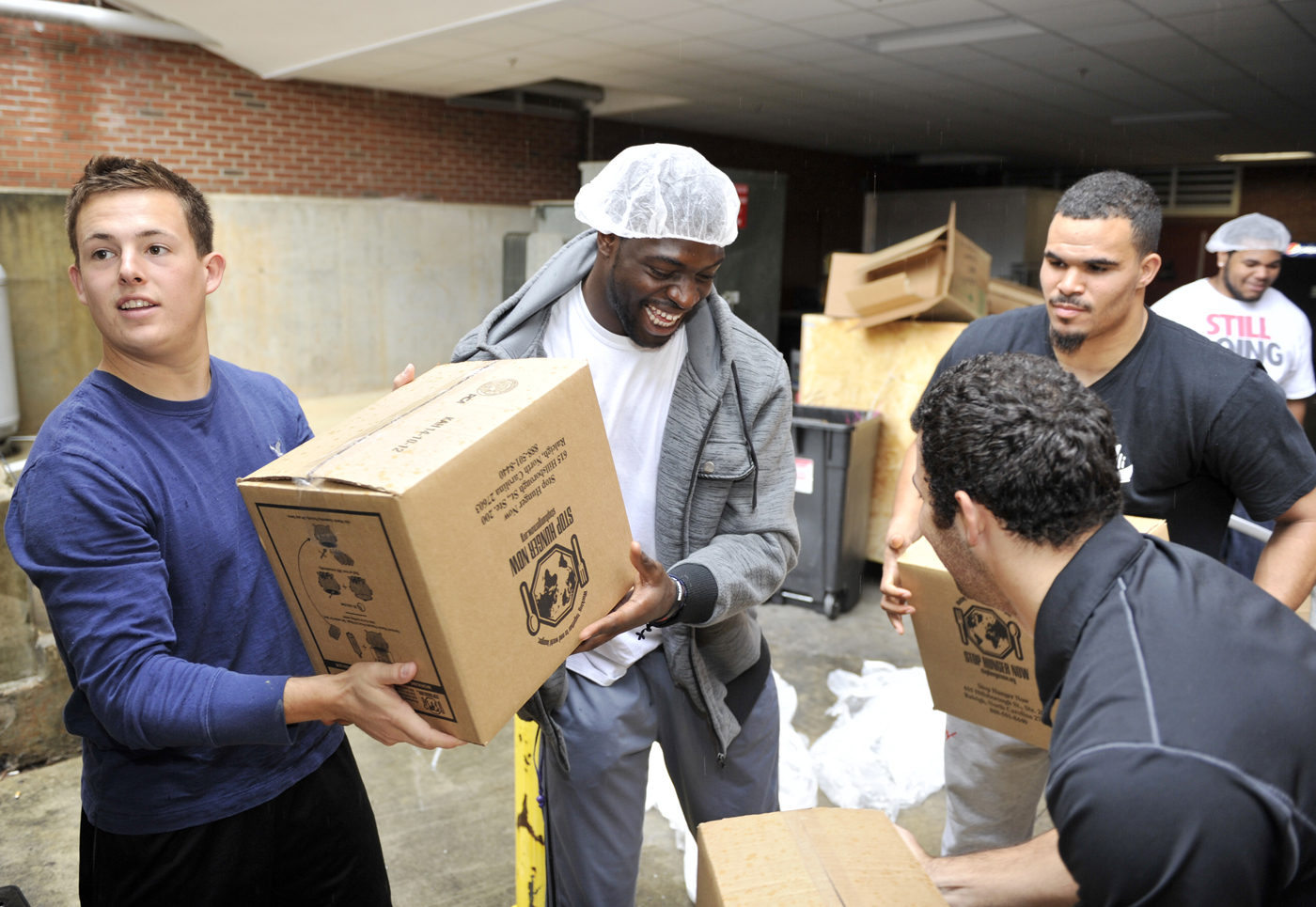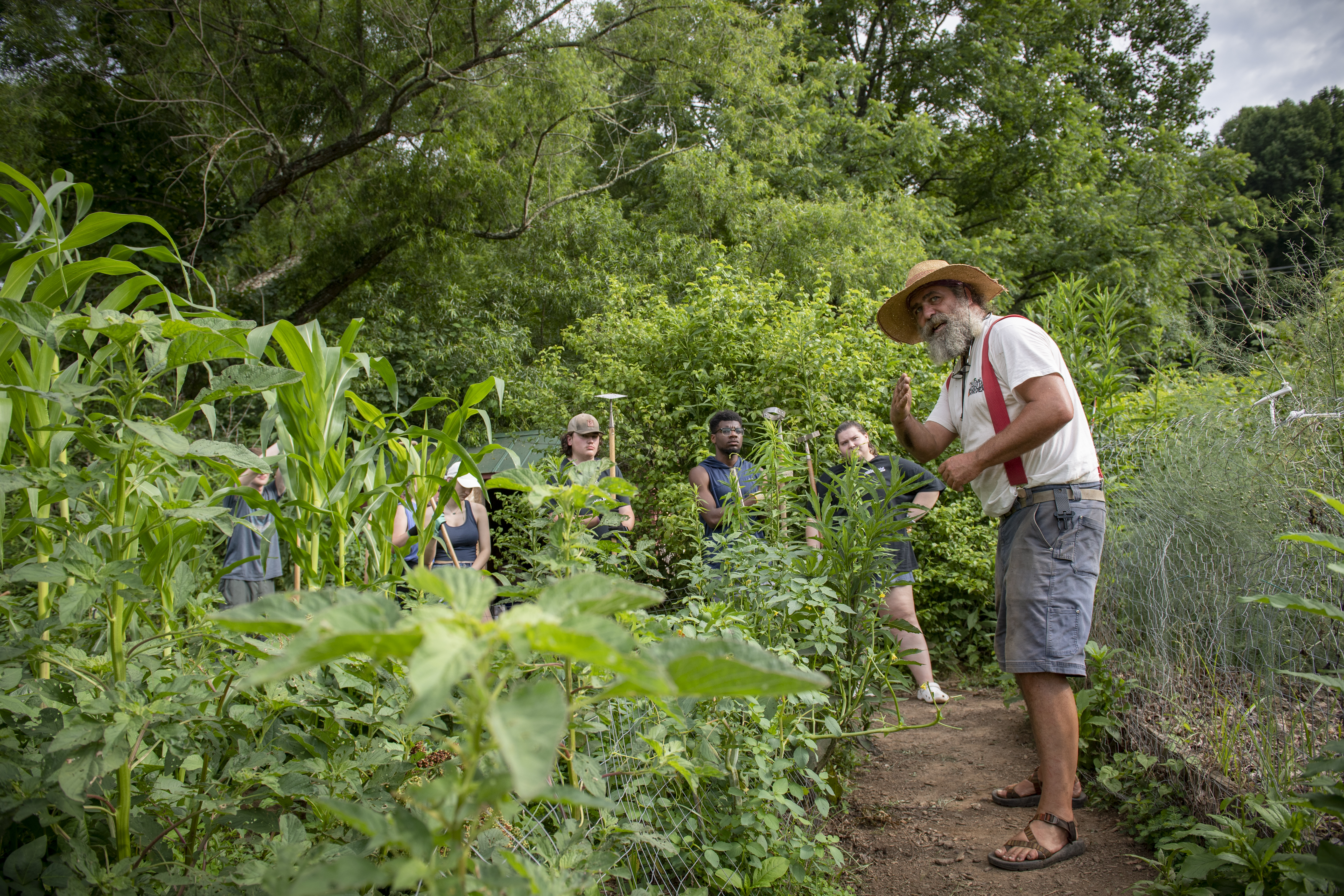Community Partners
Seeds & Soil Community Partner Event
WCU Campus - Apodaca 102
06/05/2024 10:00 AM
Community partners are invited to join us for our Seeds & Soil 2024 community partner event on Wednesday, June 5th from 10am-2pm. This annual gathering of local community partners will include an introduction to new CCESL staff, a panel of thriving WCU and community partnerships, an opportunity for networking, and roundtable work sessions focused on pressing regional issues. Lunch will be provided for all participants. We hope you can join us for this day apart! RSVP before Friday, May 25th.
Western Carolina University staff, faculty, students, and administration are committed to the University’s mission as a regionally engaged university and the work of creating collaborative connections that address critical community-identified needs. To that end, The Center for Community Engagement and Service Learning (CCESL) has the privilege of cultivating reciprocal partnerships with community organizations doing impactful work across Western North Carolina. We look forward to growing our services and building strong relationships with community partners, both established and new.
Connection Opportunities
There are many ways that community organizations can collaborate with CCESL!
Learn more about CCESL’s commitment to the community in the 2023-2024 Community Partner Action Plan.
Download our Community Partner Handbook.
Stay up to date with CCESL by subscribing to our monthly newsletter.
Community Coffee Conversations
CCESL hosts bi-monthly Community Coffee Conversations for community partners to interface with CCESL staff, learn about new ways to connect with CCESL, network with each other, and enjoy light refreshments!
Spring 2024 Schedule
Thursday, February 1st at 9:30am | Thursday, April 4th at 9:30am
Service-Learning
Service-Learning is a course-based, credit-bearing type of experiential learning in which students participate in an organized service activity with a community partner that meets a community-identified need.
Students complete 15 hours service during the course and engage in meaningful reflection that increase students’ understanding and application of course content. Types of service include direct service, indirect service, and research/advocacy. Community partners serve as co-educators or co-researchers, meeting with their faculty member 3 times during the semester to create syllabi and integrate their service needs into the course.
Establishing new Service-Learning partnerships between WCU Faculty and Community Partners should begin one year in advance to align with WCU’s course designation processes.
Deadlines for Service-Learning Course Designations:
- February 1st: Summer and Fall Courses
- October 1st: Spring Courses
Book Community Office Hours with CCESL’s Associate Director, Julia Heckert, on Thursdays between 10am-1pm to ask questions and/or share your organization’s needs and project ideas. If a partnership can be made, CCESL will then act as a connector with faculty and provide resources to help all parties establish a reciprocal partnership.
Volunteer Support & Educational Event Advertising

- CCESL is committed to sharing your volunteer opportunities with our students, faculty, and staff. Fill out this survey to submit information to have your opportunity posted on Engage.
- Interested in collaborating directly with registered student organizations? Complete this form to get connected.
- Valley Ballyhoo is a great way for community partners to interact with students during WCU’s Week of Welcome at the start of each fall semester. Learn more.

- WCU also offers year-round on-campus tabling opportunities for community partners to recruit volunteers. Contact Campus Activities Guest Services at dcaguestservices@wcu.edu or 828.277.7222.
- Having an educational event that you’d like students to attend as participants? Fill out this survey to have your event advertised on Engage. On-campus events will also be advertised on CCESL’s social media platforms.
Professional Development
CCESL will offer two Lunch and Learn professional development opportunities per semester. These will be either in-person or virtual webinars.
Spring 2024 Schedule
- Preventing Burn Out and Compassion Fatigue: Tuesday, February 20 from 12pm-1pm. In-person at WCU. Facilitated by CAPS (Counseling and Psychological Services).
- Basics of Social Media: Thursday, April 11 from 12pm-1pm. Webinar. Facilitated by WCU University Communications and Marketing. Register now.
Community Partners are invited to join CCESL at national community engagement conferences as both attendees and presenters. CCESL will provide a limited number of scholarships to interested partners.
Spring 2024 Offering
PACE Conference – February 14 at Guilford College, Greensboro, NC
North Carolina Campus Engagement’s annual Pathways to Achieving Civic Engagement (PACE)
Conference seeks to grow and share the practice and scholarship of higher education
community and civic engagement. Find more information on their website.
WNC Nonprofit Pathways Opportunities
WNC Nonprofit Pathways offers skill building services to nonprofit leaders, staff, board members, and volunteers located in NC’s 18 western counties to strengthen organizations and support sustainability. They provide free, public webinars on a variety of topics.
They also offer professional development classes that can be taken individually or in a sequence to complete their Nonprofit Fundamentals Certificate Program. Classes are $50 for organizations with a budget above $50,000. CCESL offers a limited number of scholarships for qualifying partners on a first come, first serve basis. Fill out this form to request a scholarship.
